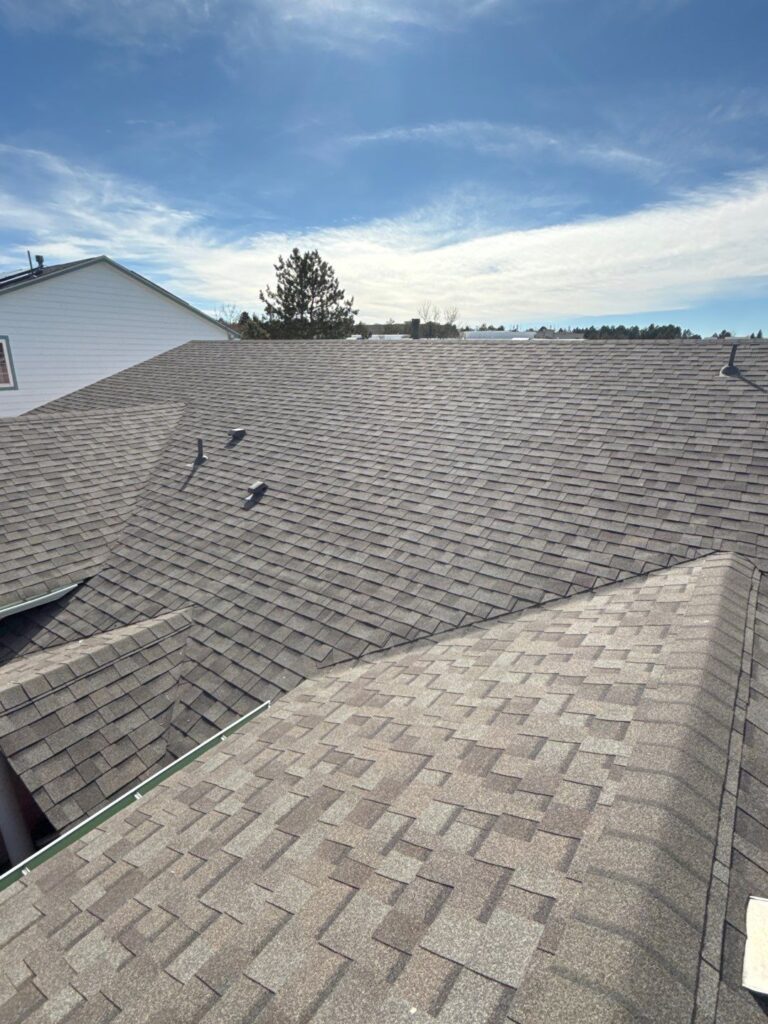
When replacing your roof in Colorado, especially in a city like Denver, navigating the insurance process can be complex. A key concern for homeowners is understanding their financial responsibility—especially whether they must pay the deductible outlined in their homeowners insurance policy. Let’s explore how deductibles work in roofing insurance claims, what’s legal in Colorado, and how to avoid costly missteps.
Understanding Roofing Insurance Deductibles in Colorado
A deductible is the amount a policyholder must pay out of pocket before insurance benefits begin to apply. In roof replacements, this is a critical factor in your total cost. Whether your claim is $5,000 or $25,000, if your policy has a $1,000 deductible, you are legally and contractually required to pay that amount before your insurer contributes anything further.
This is non-negotiable under Colorado law. Policyholders must fulfill their deductible obligation even if a roofing company offers to “waive” it. Ignoring this requirement could implicate homeowners in insurance fraud.
Why Some Roofers Offer to “Waive” Your Deductible—and Why That’s a Red Flag
Roofing companies may tempt homeowners with the promise of paying or rebating the deductible to win a contract. However, Colorado law explicitly prohibits roofers from covering, crediting, or discounting deductibles. This practice not only violates state insurance codes but may also indicate unethical or subpar workmanship.
Allowing a roofing company to pay your deductible is illegal and may void your insurance claim. Homeowners could also face fines or legal consequences if caught engaging in or benefiting from this type of fraud. Trusted roofing companies will never suggest this practice and instead focus on transparent, legal estimates that align with insurance requirements.
Types of Insurance Policies That Affect Roof Replacement Costs
Insurance coverage plays a central role in determining how much a homeowner will owe when replacing a roof. In Denver and across Colorado, insurance providers usually operate under one of two policy types:
1. Actual Cash Value (ACV) Policies
These policies factor in depreciation. Insurers only reimburse for the roof’s current value, considering age, wear, and life expectancy. As a result, homeowners will often pay more out of pocket since the reimbursement won’t cover the full cost of a new roof.
Due to frequent hail and snow damage claims in Colorado, many insurers have shifted from more generous policies to ACV. This has made understanding policy terms more important than ever for homeowners seeking roof repairs in Denver, CO.
2. Replacement Cost Value (RCV) Policies
RCV policies are more favorable. They cover the full cost of replacing the roof with new materials—minus your deductible. Usually, the payout is split: you receive an initial payment based on ACV, and once the roof is replaced and verified, a second check reimburses the remaining balance (recoverable depreciation).
While premiums for RCV policies tend to be higher, the coverage is more comprehensive and typically reduces out-of-pocket expenses—aside from upgrades or non-covered enhancements.
Upgrades and Additional Expenses: What’s Not Covered?
Even with the best insurance policy, certain costs fall outside the scope of standard coverage. These include:
- Material upgrades (e.g., switching from 3-tab shingles to architectural shingles)
- Extended warranties
- Accessory enhancements (ventilation systems, skylight modifications, etc.)
Homeowners must prepare to cover the difference between the insurance payout and any non-covered or premium upgrades.
Legal and Ethical Roofing Practices in Denver
Choosing a roofing contractor in Denver requires careful evaluation. Reputable roofing companies comply with state laws, never offer illegal incentives, and guide homeowners through the claims process with integrity.
Tried and True Roofing, a professional roofing company in Denver, Colorado, adheres strictly to legal and ethical guidelines. Their experienced team supports homeowners throughout insurance claims, ensuring every aspect—from inspection to installation—is handled with accuracy and transparency.
How to Safely Navigate the Roof Replacement Insurance Process
To stay protected and compliant, homeowners should follow these key steps:
- Review your policy in detail. Understand your deductible, exclusions, and the type of coverage (ACV vs. RCV).
- Document all damage thoroughly with photographs and reports.
- Get a reputable roofing inspection before filing a claim.
- Work only with licensed and insured roofing companies that are transparent and follow Colorado law.
- Never accept offers to waive or rebate your deductible.
Doing so will not only protect you from legal risks but also ensure long-term satisfaction and protection for your home.
Conclusion
Paying your deductible for a roof replacement in Denver, Colorado, is not optional—it’s the law. Roofing companies that offer to waive your deductible are breaking the law and exposing you to liability. Make informed decisions, choose ethical contractors, and fully understand your insurance policy terms to avoid pitfalls and ensure a smooth, compliant roof replacement experience.
By aligning with professional and licensed roofing companies in Denver, you secure not only your investment but also peace of mind for years to come.

